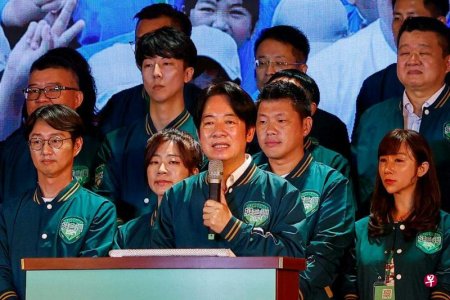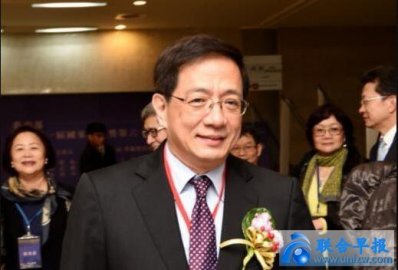Qi Dongtao
At the end of last year, a series of public opinion surveys from several Taiwan institutions found some surprising phenomena in all ways: Taiwan society's favorability for mainland governments and people is rising, and the proportion of Taiwanese is just declining and dual recognition.The proportion of the proportion of both Taiwanese and Chinese) is rising and willing to work in the mainland for four years, and even the proportion of supporting unification is increasing.
This is not only contrary to the trend of nationalist emotions in Taiwan ’s society for a long time, but also occurs in a period of tension between cross -strait political relations after one and a half years after the DPP pursuing the“ Taiwan independence ”.On the mainland side, the "Wu Tong theory" that was once loud has gradually cooled.Why does the official political relationship between the two sides of the Taiwan Strait intensify, but the folk social relations are improved?
First of all, it is necessary to clarify that the annual survey of Taiwan's "United Daily News" shows that the favorability of Taiwanese society for the mainland governments and people has been rising year after the lowest point in 2013 and 2014.It shows that the decline in the proportion of Taiwanese and the increase in the same proportion, and the proportion of supporting unification slightly increased, is also a trend since 2014. It is worried that "the mainland will use the economy in the future to ask Taiwan to ask Taiwan to make political concessions political concessions in the future"The proportion of Taiwanese has declined year by year since 2015.Therefore, the improvement of the attitude towards the mainland in Taiwan and the decline of the nationalist emotions of Taiwan began to appear in the later stages of Ma Ying -jeou.Tsai Ing -wen came to power and the followers of cross -strait political confrontation, but did not change these new trends.
Overall, this reflects that the nationalist emotions in Taiwan gradually declined after reaching a record high in 2014.Nationalist emotions are a very typical opposition. If the threat or stimulus of the opposite is getting bigger and bigger, your nationalist emotions will become stronger and stronger.On the contrary, if the threats and stimulus of the opposite are gradually decreasing, the nationalist emotions will also weaken.There are two opposites of Taiwan nationalism, namely the island's "promotion" and "pro -China" forces, and the mainland.
In 2014, the magnificent "Sunflower Movement" broke out in Taiwan. Oppositioning the Ma Ying -jeou government signed the "Service Trade Agreement" with the mainland, showing that Taiwan's nationalist emotions rose sharply due to the threat of the Kuomintang's "pro -China" behavior.However, with the successful stopping and the Kuomintang's nine -in -one local elections at the end of 2014, with the defeat of the president and the legislature election in early 2016, the Taiwanese nationalist feels that the threat of the opposite side has declined sharply.The nationalist emotions have also fallen accordingly.
After Tsai Ing -wen came to power, although "flexible Taiwan independence" was promoted in the field of economy, politics, culture, but not as Chen Shui -bian's various threats to Taiwan's various threats to Taiwan, as Chen Shui -bian used to publicize the problems of ethnic groups and cross -strait issues.He has repeatedly expressed his hope that he can maintain the good cross -strait relations established with the mainland during the Ma Ying -jeou period, and repeatedly promise to the mainland and the United States that he will not follow the radical against the old way like Chen Shui -bian.Such a stable and flexible "Taiwan independence" policy has also subtly influenced the decline of Taiwan's nationalism.In fact, when Chen Shui -bian was in office in 2000, he announced that "there is no one without one", and the legal Taiwan independence that guarantees that the mainland and the United States guarantee not to engage in radical Taiwan independence.Criticism is to compromise excessively to the mainland and crack down on Taiwan's nationalism that is developing rapidly.
The huge controversy caused by the various policies implemented by the Tsai Ing -wen government in Taiwan also promoted the decline of Taiwan's nationalism.I have found that democracy is a core concern of Taiwan nationalism. The more satisfied with the democratic system in Taiwan, the higher their nationalist mood; on the other hand, the dissatisfaction with the Taiwan democratic system will weaken Taiwan's nationalism.The DPP has always been considered to be more democratic and more grass -roots than the Kuomintang, but since he came to power, relying on his advantages in the Legislative Yuan, forcibly through various controversial policies, it has broken the beautiful fantasies of the DPP for the DPP and caused strongSocial resistance has led to a sharp decline in the government's social support.This should affect the democratic nature of the DPP and Taiwan democratic system in Taiwan, and indirectly leads to the decline in Taiwan's nationalism.In addition, young people and workers were the main support groups of Tsai Ing -wen, and they were also relatively strong groups of nationalist emotions.It also led to the decline of their nationalist emotions.
Another opposite of Taiwan nationalism is the mainland.The performance of the mainland after Cai Yingwen came to power remarkable, because although the Tsai Ing -wen government continued to "pressurize", it did not cause a strong rebound in Taiwanese society, but instead made Taiwanese society's gradually declined nationalism.This is the success of the mainland's Taiwan policy.
According to the facts of the development of cross -strait relations during the Ma Ying -jeou period, the basis for maintaining the status quo of cross -strait relations is the "1992 Consensus", and the "1992 Consensus" is part of the current status of cross -strait.Tsai Ing -wen did not accept the "1992 Consensus", which first destroyed the status quo on both sides of the strait. Instead, he repeatedly criticized the mainland to unilaterally destroy the status quo, which made the mainland unacceptable.
Tsai Ing -wen tries to abandon the status quo that he doesn't like, only retains the part of his favorite, let alone the difference between the mainland and Taiwan with such a different strength.accomplish.Taiwan society should understand this.
Long -term anti -independent promotion work
What the mainland is doing now is the opportunity formed by Tsai Ing -wen's first change of the status quo, limiting the activity space and influence of "Taiwan independence" in various fields, and accelerating the creation of a new status quo that is conducive to long -term anti -independence promotion.Chinese leaders have warned the DPP: "The foundation is not solid, and the mountains shake the mountains." One challenge facing the mainland is to deter the Tsai Ing -wen government and Taiwan independence forces on the one hand.Essence
In this regard, the method of the mainland government is to treat differentiation, that is, distinguish the official and the folk, distinguish the number of minority supporting Taiwan independence and the majority of the most friendly to the mainland, distinguish between political and economic and social relations, pressure the former, and express more goodwill to the latter., Strive to form a situation of "separation of officials and hot people".
The difficulty is the part of the pressure, which can make Tsai Ing -wen feel the pressure and not stimulate the rebound of nationalism in Taiwan.From the perspective of the author's observation, the mainland government has gradually explored a set of effective pressure on pressure. The core is to choose a topic with high political sensitivity but low social sensitivity.Such issues have important essence or symbolic significance for Taiwan's officials and politics, but it is not a common concern of the public.
One example is the number of diplomatic relations between Taiwan and the participation in the international community.For the Tsai Ing -wen government, from a political point of view, the continuous reduction of the establishment of diplomatic relations and international participation is a major blow, which is a issue with strong political sensitivity, but it is a issue with low sensitivity for society, because except for someSome people who have been paying attention to this issue for a long time and relatively radical Taiwan independence people may be angry among ordinary people, but because they have nothing to do with their own lives, this anger will not be maintained for a long time without continuous encouragement.Stable nationalist emotions.
The mainland "military aircraft around Taiwan, the aircraft carrier through the Taiwan Strait", the M503 route, etc., which are hotly fired by some media in Taiwan and the West, seem to belong to such issues. Although the Tsai Ing -wen government feels pressure, it does not cause Taiwanese societyUniversal anxiety, so it helps to maintain the trend of nationalist mood decline.
In the mainland, the "martial arts theory" was the opposite issue, that is, the political sensitivity was not high, but the social sensitivity was high.The political sensitivity of "Wu Tong Theory" is not high because the Cai Yingwen government does not think that the mainland will implement "martial arts" in recent years, so "Wu Tong theory" will not cause substantial pressure on the Cai Yingwen government.
The social sensitivity of "Wu Tong Theory" is because it stimulates a lot of stimulus to Taiwan society, which is easy to trigger a saliva war between netizens on both sides of the strait. Especially during the election period of Taiwan, it is easier to cause the general rebound of Taiwanese society and have it.Facilize the Democratic Progressive Party's election.The mainland government's guidance and control of "vocalization" is successful, and it also helps the decline in the nationalist emotions of Taiwan.The decline of nationalist emotions on both sides of the strait and the improvement of social relations are conducive to the findings of cross -strait politicians to find a way to improve political relations.All parties should continue to create conditions to promote cross -strait social relations.
The author is a researcher at the East Asia Research Institute of Singapore
Nationalist emotions are a kindIt has been transformed into a stable nationalist emotion for a long time.
The mainland "military aircraft around Taiwan, the aircraft carrier through the Taiwan Strait", the M503 route, etc., which are hotly fired by some media in Taiwan and the West, seem to belong to such issues. Although the Tsai Ing -wen government feels pressure, it does not cause Taiwanese societyUniversal anxiety, so it helps to maintain the trend of nationalist mood decline.
In the mainland, the "martial arts theory" was the opposite issue, that is, the political sensitivity was not high, but the social sensitivity was high.The political sensitivity of "Wu Tong Theory" is not high because the Cai Yingwen government does not think that the mainland will implement "martial arts" in recent years, so "Wu Tong theory" will not cause substantial pressure on the Cai Yingwen government.
The social sensitivity of "Wu Tong Theory" is because it stimulates a lot of stimulus to Taiwan society, which is easy to trigger a saliva war between netizens on both sides of the strait. Especially during the election period of Taiwan, it is easier to cause the general rebound of Taiwanese society and have it.Facilize the Democratic Progressive Party's election.The mainland government's guidance and control of "vocalization" is successful, and it also helps the decline in the nationalist emotions of Taiwan.The decline of nationalist emotions on both sides of the strait and the improvement of social relations are conducive to the findings of cross -strait politicians to find a way to improve political relations.All parties should continue to create conditions to promote cross -strait social relations.
The author is a researcher at the East Asia Research Institute of Singapore
Nationalist emotions are a very typical opposition. If the threat or stimulus of the opposite is getting bigger and bigger, your nationalist emotions will become stronger and stronger.On the contrary, if the threats and stimulus of the opposite are gradually decreasing, the nationalist emotions will also weaken.



